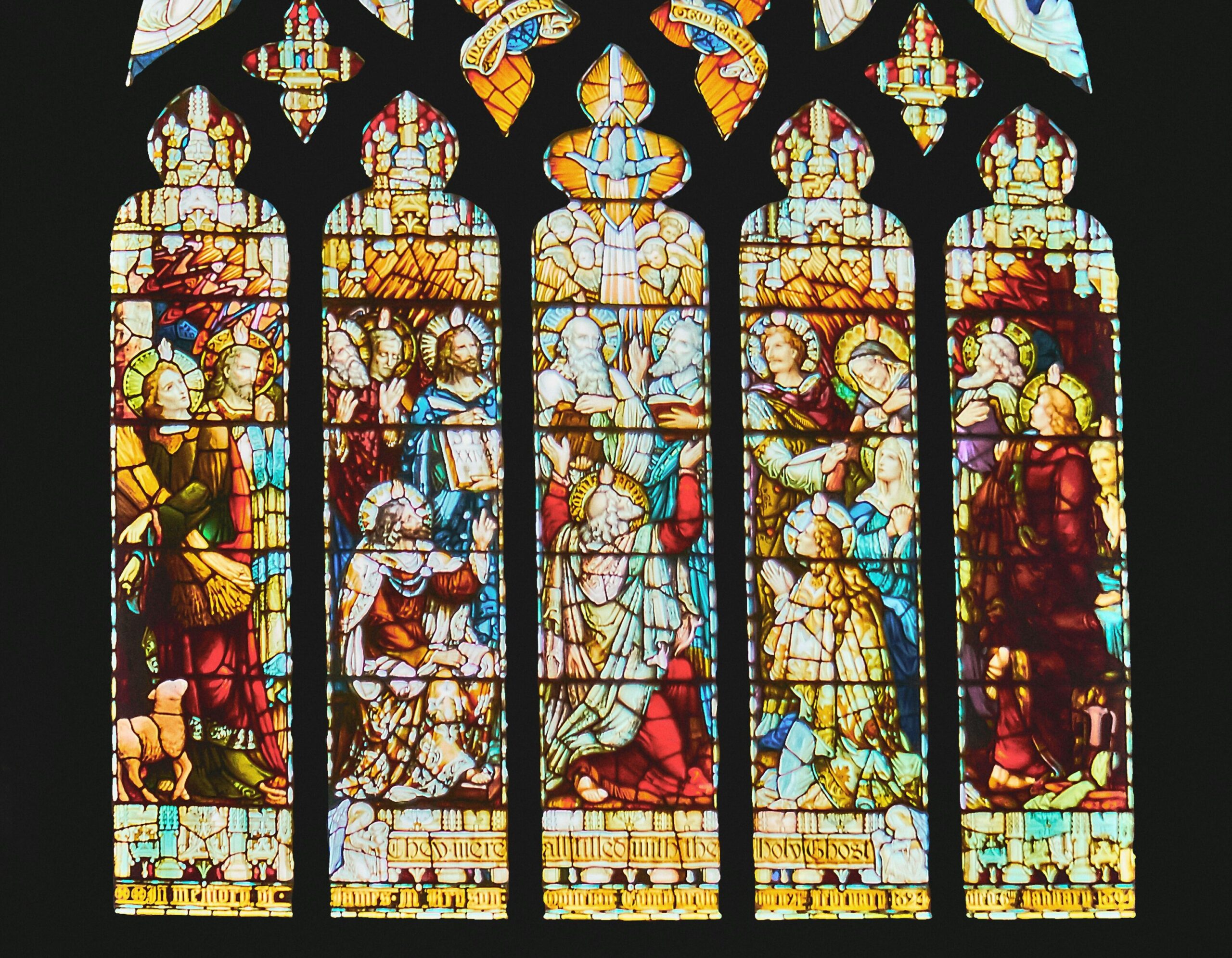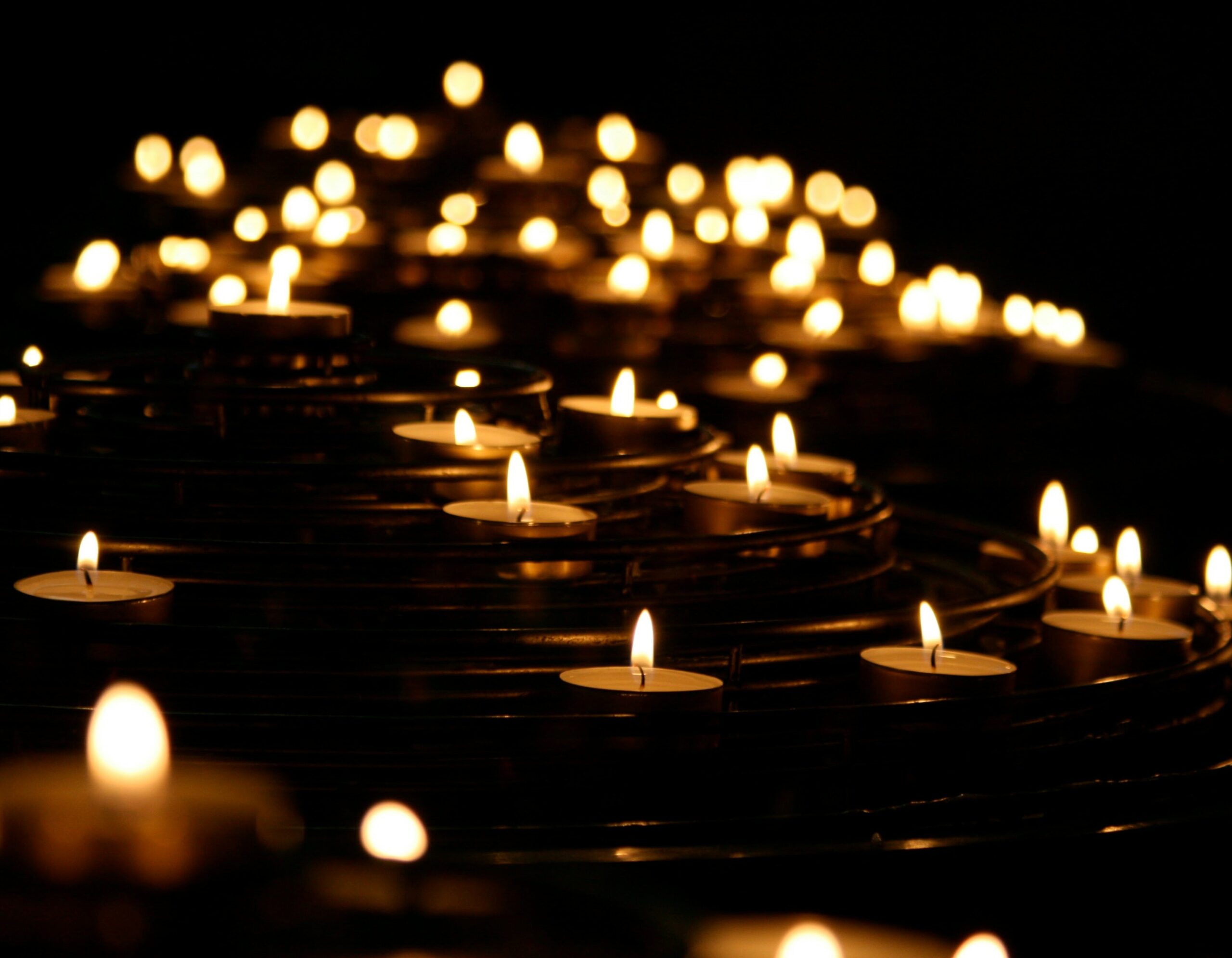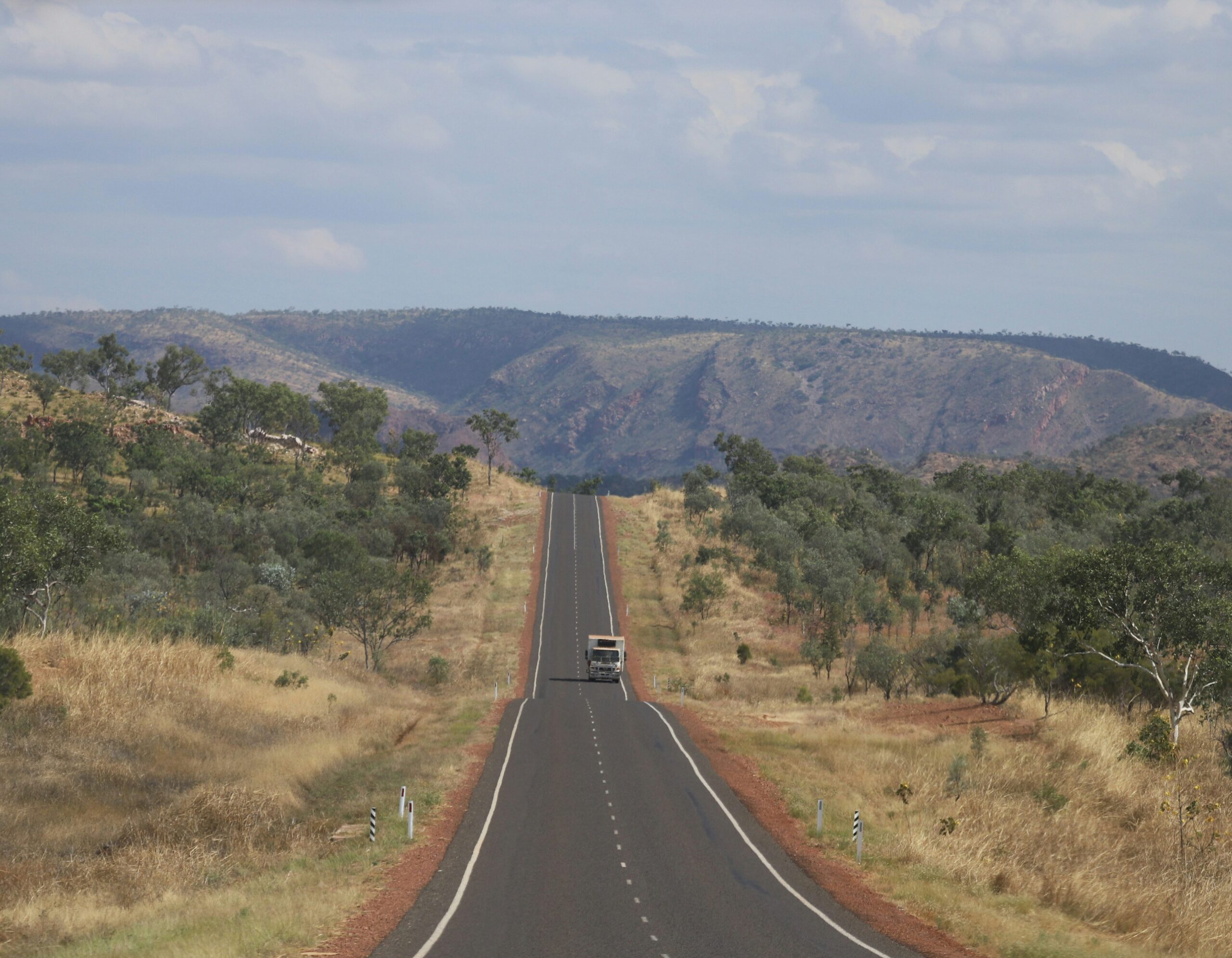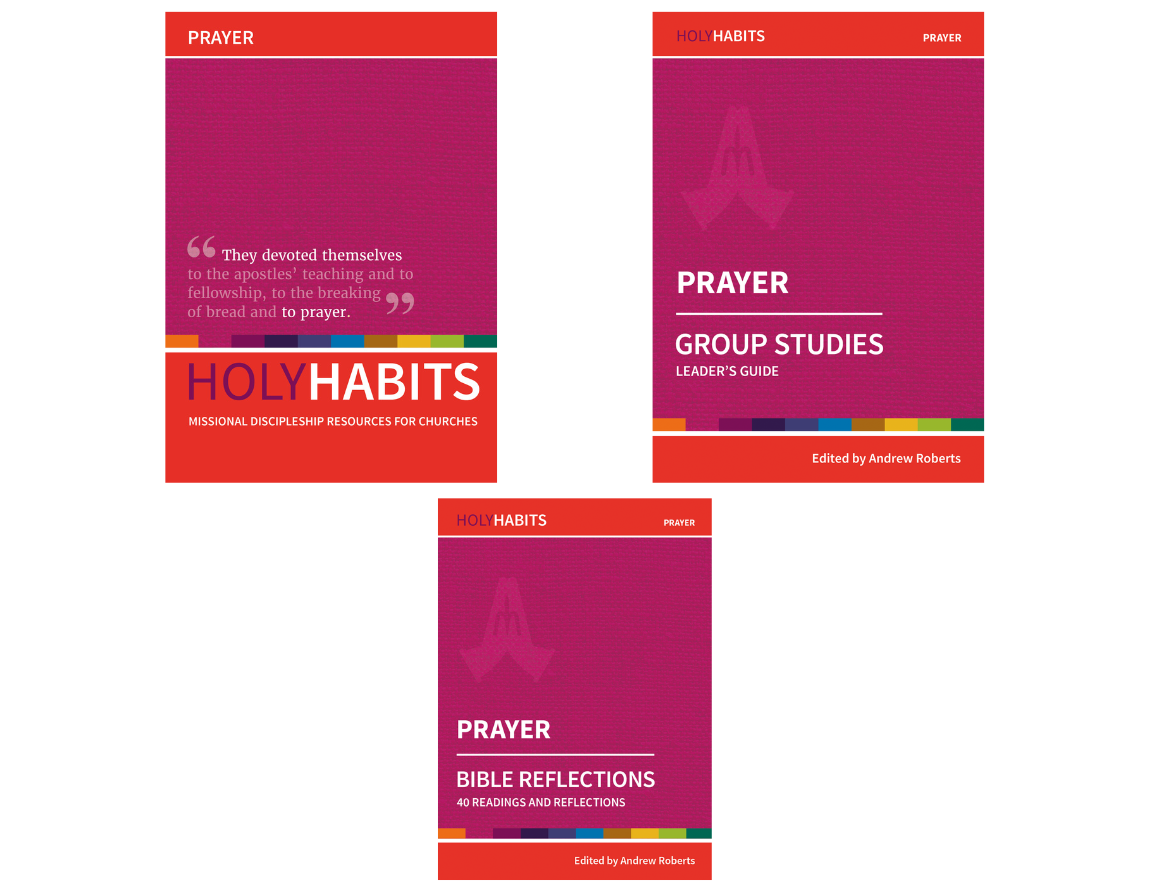Following on from last week’s exploration of different ways to pray, we draw on the Holy Habits Bible reflections on prayer with this edited extract which begins with the dramatic events of Pentecost.
19 May 2024
When the day of Pentecost came, they were all together in one place. Suddenly a sound like the blowing of a violent wind came from heaven and filled the whole house where they were sitting. They saw what seemed to be tongues of fire that separated and came to rest on each of them. All of them were filled with the Holy Spirit and began to speak in other tongues as the Spirit enabled them.
Acts 2:1–4 (NIV)
Prayer is a major theme of Luke’s gospel and Acts. It is no surprise to see Luke presenting prayer as one of the hallmarks of the first Christian communities. In the immediate aftermath of Pentecost, the focus is on spontaneous, unstructured prayer in either native or unlearned languages (Acts 2:4). The disciples are on fire. The praying is spontaneous, passionate, energetic, noisy and expectant.
Sometimes prayer is like that. Such times of prayer are a gift to be treasured. But sometimes, often, usually, it is much more routine. It is a habit to be practised and which takes time to form.

In the immediate aftermath of Pentecost, the focus is on spontaneous, unstructured prayer in either native or unlearned languages.
Shared prayers
By the time we get to Acts 2:42, Luke slips in the little phrase ‘the prayers’. The use of the plural with the definite article implies the use of certain regularly used prayers. The church of Jesus began as a movement within what scholars call Second Temple Judaism, so the shared prayers of the communities described in Acts would have been mainly Jewish prayers with added Christian flavouring.
The Lord’s Prayer may have been included in the regular prayers. So, very early on in the Christian tradition, we have spontaneous and set prayers both playing a valuable part in living the adventure of discipleship. Similarly, we see both public and private prayer. This is a reminder to us not to be too precious about our preferred ways of praying, as well as an encouragement to try different ways of praying.

Very early on in the Christian tradition, we have spontaneous and set prayers both playing a valuable part in discipleship.
The wilderness state
As we touched on in last week’s article, of all the holy habits, prayer is the one most at risk of becoming dry and difficult. Over the centuries, many of the great saints of the faith have shared honestly about the struggles they have had in prayer. St John of the Cross’ poem ‘Dark night of the soul’ explores the struggles we can endure as we seek to grow in spiritual maturity and union with God.
In his sermon ‘The wilderness state’, John Wesley dealt candidly with the times of dryness we experience along the way of the adventure of discipleship.
Dryness can have many causes. Sometimes, we may just be physically exhausted and need a good rest or change of scene. At other times, our selfishness or sin may be marring our relationships with God and others and withering our prayer life – in which case, we need to seek forgiveness through confession, contrition and repentance.

Of all the holy habits, prayer is the one most at risk of becoming dry and difficult.
Not just for our own blessing
Dryness can also be the result of tiredness with the way we have been praying – in which case, trying something new and being creative can be really helpful. The strapline of the old Martini commercials can help us, for prayer is a habit to be practised ‘anytime, anyplace, anywhere’. And we could add ‘with anyone’, as, with all the other habits, this is a gift we receive not just for our own blessing but for the blessing of others too. It is both a discipleship and a missional practice and may be just what someone else needs to receive today. Perhaps take a few minutes to ponder this truth as you consider this reflection on the Lord’s Prayer:
Father and mother of us all, with us, yet not of this world,
your name is precious to us.
We long to see the world as you would have it,
as we know it will become,
but for now we are thankful for the things we need here today –
food, shelter, health, love and enough to do.We know we are not always the people you would like us to be –
we fail you, ourselves and each other
and we are not as forgiving as we could be –
so we ask that we might know ourselves made new
and set free to release others from our anger and hurt.Though life is full of temptations,
help us to stand firm
and keep us from straying down the wrong paths.All this we ask because we know that
you are the power that keeps us loving,
yours is the kingdom we inhabit by faith
and through us we hope the world will see.As Jesus has taught us and as the Holy Spirit urges us,
so we pray.
Amen.

